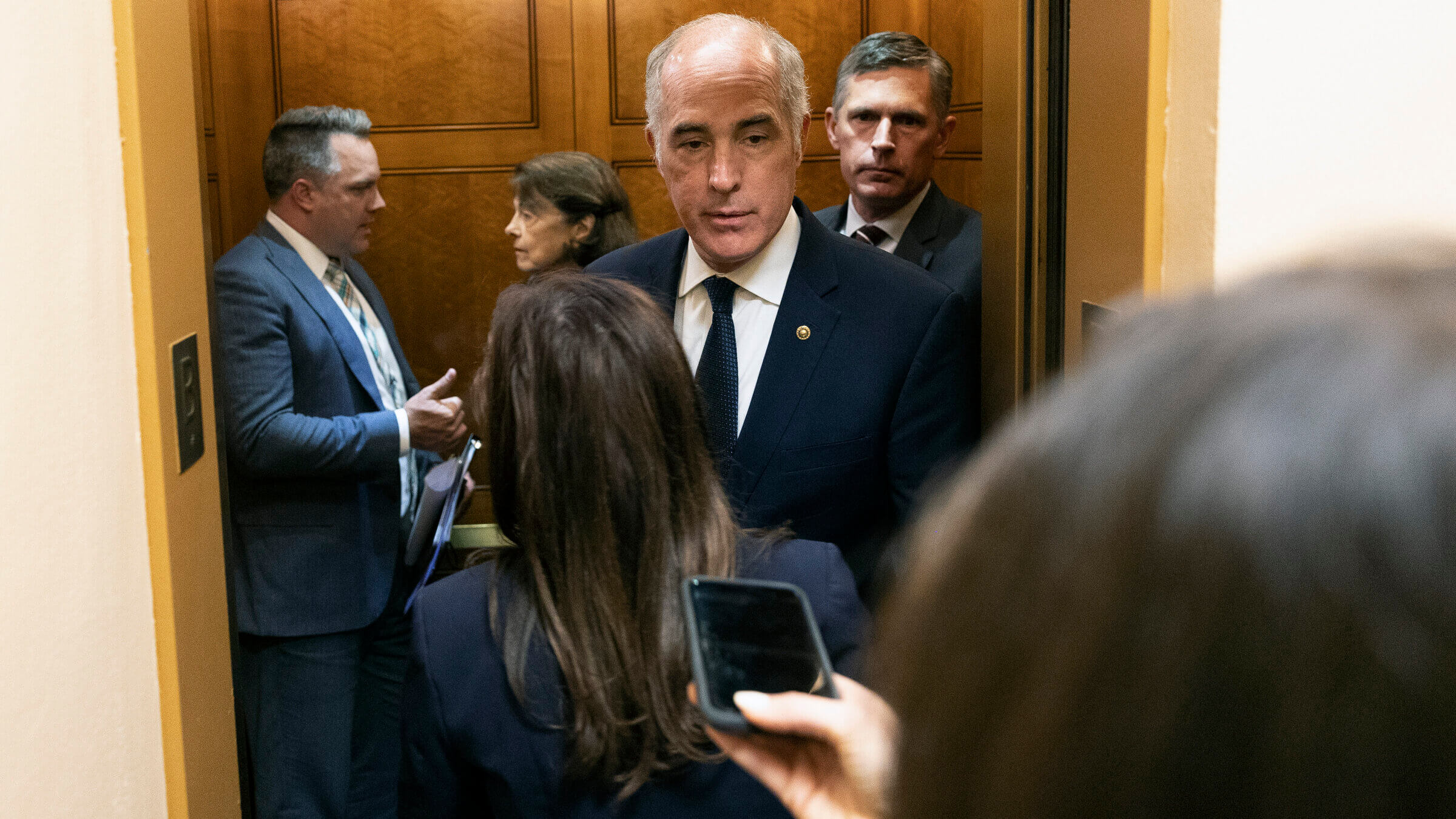Will the Senate quietly approve a controversial antisemitism definition?
After it stalled earlier this year, Sen. Bob Casey hopes to include the Antisemitism Awareness Act in a defense spending bill

Sen. Bob Casey, D-Pennsylvania, is trying to pass the Antisemitism Awareness Act through an amendment to a major military spending bill. Photo by Getty Images
“Antisemitism Notebook” is a weekly email newsletter from the Forward, sign-up here to receive the full newsletter in your inbox each Tuesday
Earlier this year, there was a flurry of action around a piece of federal legislation that proponents say would help address campus antisemitism. The Antisemitism Awareness Act sailed through the House in May with bipartisan support, despite concerns from some top Democratic lawmakers, among others, that it could stifle free speech. The bill would codify a requirement for the Education Department to use a controversial definition that classifies anti-Zionism as a form of antisemitism when investigating allegations of discrimination.
Its supporters in the Senate, including Pennsylvania’s Bob Casey, tried to rush it through the upper chamber. But they ran into opposition from some of their colleagues and the momentum seemed to have petered out.
But Casey resurrected the legislation last week as an amendment to the National Defense Authorization Act, which determines military spending and is one of the few pieces of legislation that reliably sails through a gridlocked Congress.
“Sen. Casey is working on all possible avenues to pass this legislation,” said Natalie Adams, his spokesperson. “It’s past time we passed this bill.”
It’s a savvy move from the moderate Democrat.
Schumer seeks ‘agreement’
The amendment would likely need the support of Senate Majority Leader Chuck Schumer, who has been reluctant to bring the Antisemitism Awareness Act to a floor vote over fears that it would divide his caucus and draw more support from Republicans than Democrats.
But Schumer might be more open to accepting the amendment, which wouldn’t require him to hold a potentially divisive vote separate from approval of the defense spending bill. It would also assuage demands from several leading Jewish groups for Congress to codify the controversial International Holocaust Remembrance Alliance’s working definition of antisemitism.
On the other hand, Schumer would likely need to override the wishes of Sen. Bernie Sanders — whose education committee is currently considering the legislation — and ignore the concerns of an unusually diverse range of other opponents.
“The political pressure on this issue right now is insane,” said Kevin Rachlin, Washington director for the Nexus Leadership Project, a center-left Jewish group opposed to the act.
Yet a source familiar with the negotiations said Schumer won’t clear a path for the bill’s passage until senators from both parties reach a consensus on wording. “There has to be Republican and Democratic agreement on the language,” he said.
READ MORE:
- Why top Democrats oppose bipartisan bill targeting antisemitism in universities (Forward)
- House passes antisemitism bill over complaints from First Amendment advocates (Washington Post)
Jacob Kornbluh contributed to this report
























